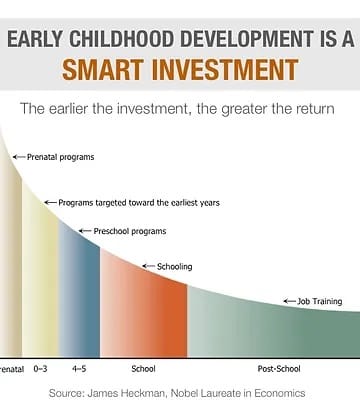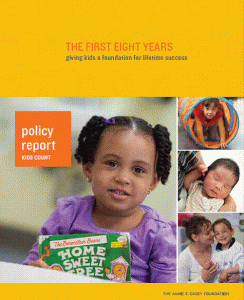Early childhood education helps families and our community.
According to the Center for American Progress’s 2013 study of the effects of budget cuts on Early Childhood Education programs, children without early childhood education are:
- 25% more likely to drop out of school,
- 40% more likely to become teen parents,
- 50% more likely to require special education classes,
- 60% more likely to not attend college,
- and 70% more likely to be arrested for a violent crime.
Early childhood intervention is a strong tool to address serious problems at their root, and Head Start has been proven to be an effective vehicle for these efforts. Without RAI’s Head Start programs, survival would be more difficult for transitional families: those who move from the reservation to Rapid City looking for greater opportunity for their families.

We estimate that we save our families at least $1200 per month in child care and transportation costs, or $14,400 per child each year.
Moreover, our program addresses the needs of the whole family. There is great disparity in the unemployment rate in Rapid City between Native people at 50% and non-Natives at 4.6%. Having a job changes lives and changes communities.
It is our priority to cultivate teachers from among people whose children have been in our Head Start program, and we provide job-skills training in early childhood development:
- Of the 36 Early Head Start staff in Rapid City, 20 are or were Head Start parents.
- Of the 48 Head Start staff, 26 were former Head Start or Early Head Start parents.
Volunteerism is a path to employment:
- Of the 67 volunteers in Early Head Start, 52 are Head Start parents
- Of the 174 Head Start volunteers, 158 are/were Head Start parents.


…and Makes Economic Sense
“Those seeking to reduce deficits and strengthen the economy should make significant investments in early childhood education. “
-Dr. James J. Heckman, 2000 Nobel Prize Winner in Economics
Investing in early childhood education to increase high school graduation rates would boost South Dakota’s economy. For example, a 5% increase in male high school graduation rates is estimated to save South Dakota $1.6 million in annual incarceration costs and crime-related expenditures. If that same 5% not only graduated but went on to college at the same rate as typical male high school graduates, their average earnings would accrue an additional $7 million annually. If just one year’s high school dropouts could be converted to high school graduates, South Dakota households would have an additional $580 million in accumulated wealth over the lifetime of the students from the graduating class.
James J. Heckman is the Henry Schultz Distinguished Service Professor of Economics at The University of Chicago, a Nobel Laureate in Economics and an expert in the economics of human development. From www.heckmanequation.org
“A strong and prosperous society flourishes when there is a commitment to the care, health and education of its youngest children.
The findings in this policy report suggest that high-quality early childhood programs that include supports for families have a powerful and lasting impact on children as they progress through school and into adulthood”.
-Annie E. Casey Foundation “Kids Count” Policy Report, Conclusion, Page 14

